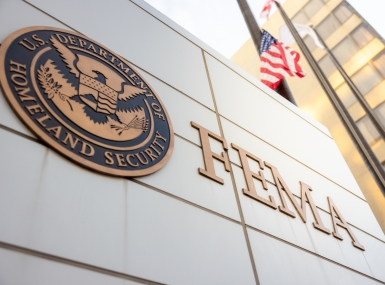Senate introduces bipartisan Juvenile Justice and Delinquency Prevention Act, sets FY16 funding at $159 million

NACo members are encouraged to reach out to their senators and ask them to co-sponsor S. 993, the Juvenile Justice and Mental Health Act of 2015. Additionally, consider using social media to advocate for reauthorization of the Juvenile Justice and Delinquency Prevention Act (JJDPA).
Sens. Charles Grassley (R-Iowa) and Sheldon Whitehouse (D-R.I.) have introduced the Juvenile Justice and Delinquency Prevention Act of 2015 (JJDPA), a legislative priority for NACo and critical legislation for counties that operate juvenile deten tion centers, house justice-involved children in jails or provide social services to justice-involved children.
The JJDPA (S.1169) is the prin cipal program through which the federal government sets standards and provides funding for the care and custody of juveniles in the criminal justice system. Counties must adhere to requirements in the JJDPA in order to receive federal funding.
The new bill would make a num ber of changes to current law. It would phase out the use of a provision, the Valid Court Order (VCO) exception, that allows judges to detain juveniles for committing status offenses. Ad ditionally, S. 1169 would strengthen accountability measures largely a result of the U.S. Department of Justice (DOJ) Office of Juvenile Justice Delinquency Prevention's admission that its monitoring and auditing procedures were outdated and insufficient.
The JJDPA would also require the state agency that receives federal juvenile justice grants to collaborate with the state agency receiving El ementary and Secondary Education Act (ESEA) funds. The two agencies would be charged with developing a plan that would accomplish the following: timely transfer of student records between juvenile facilities and school districts; transfer of credits, and application of "full or partial" credit toward high school graduation for coursework completed during incarceration.
Funding for JJDPA would be authorized at $159 million for FY16, $162.2 million for FY17, $165.4 mil lion for FY18, $168.7 for FY19 and $172.1 for FY20.
The proposal would maintain the four core protections for juveniles now contained in current law:
- Deinstitutionalization of Sta tus Offenders: Status offenses are offenses that are only crimes if committed by children under age 18. These include truancy, running away, breaking curfew and possession or use of alcohol. Under the JJDPA, status offenders may not be held in secure detention or confinement unless there is a valid court order (VCO) issued by a judge that would allow the status offending juvenile to be detained.
- Jail Removal: Under the JJDPA, juveniles may not be detained in adult jails except for limited periods before release or transporting to an appropri ate juvenile placement (6 hours), in rural areas (24 hours plus weekends and holidays), or when weather and travel conditions prevent authority from transport.
- Sight and Sound Separation: Under the JJDPA, when youths are held in an adult jail under the exceptions listed above, they may not have sight or sound contact with adult inmates. Children may not be housed with or next to adult cells or share dining halls, recreation areas or any other common spaces with adult inmates. Further, children may not be placed in a circumstance where they could have any visual or verbal contact with adult inmates.
- Disproportionate Minority Contact: States must assess and ad dress the disproportionate contact of youth of color at key decision points in the juvenile justice system.
Attachments
Related News

Senate passes Second Chance Act reauthorization
On May 22, the Second Chance Reauthorization Act of 2025 (H.R. 3552/S.1843) was introduced in the U.S. Senate and the U.S. House of Representatives with robust bipartisan support. NACo supports this legislation, which would reauthorize funding for Second Chance Act (P.L. 110-199) programs through 2030.

FEMA delays $11 billion in state disaster reimbursements
The Federal Emergency Management Agency (FEMA) recently withheld roughly $11 billion in planned disaster reimbursements to 45 states, shifting the payments to fiscal year 2026 and marking a major change in how the federal government is managing disaster relief funding.

Nuanced EMS response addresses paramedic shortage
Facing a shortage of paramedics, Pasquotank County, N.C. created a response program that better assigns its personnel to where their skills are most needed.
